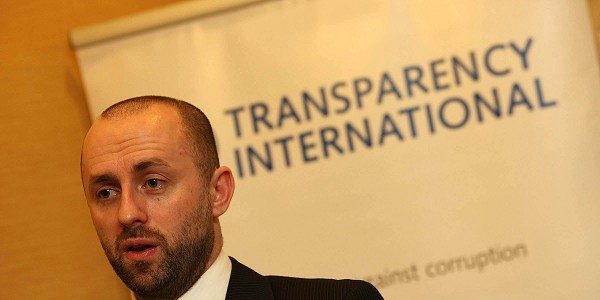The Government should be embarrassed by its failure to bring in new anti-corruption laws four years after proposals were announced, a watchdog has said.
Transparency International Ireland criticised the Director of Public Prosecutions for delayed decisions on charges following the Moriarty tribunal’s findings on payments to politicians.
It also warned that the Garda and Standards in Public Office Commission (Sipo) have been starved of the necessary specialist staff and financial resources to investigate corruption.
TI Ireland chief executive John Devitt called on political leaders to commit to reforms and dedicate adequate resources to stop corruption after the election.
“The apparent lack of action and political ambivalence towards Judge Moriarty’s findings sends the public the message that different rules apply to those in positions of power and influence,” he said.
“The impact this has on public attitudes will be deeply corrosive of trust in democratic government and our criminal justice system.”
TI criticised the Government for not prioritising the c riminal justice legislation which would have dealt with corruption on the back of the findings of the Mahon tribunal into payments to politicians and planning matters.
One key reform would have barred a politician from standing for election for a number of years if found guilty of corruption.
Separately, amid speculation on whether Independent TD Michael Lowry could be asked to support a coalition despite Moriarty findings against him over the award of a mobile phone licence, Mr Devitt said the political view of such a tie-up was detached from voters’ thinking.
“I think the government parties would consider going into coalition with Mr Lowry if they thought they could get away with it,” he said.
“But there’s a sizeable proportion of the electorate that would find the prospect of that unacceptable.”
Ireland has slipped one place on TI’s perceptions index for 2015, from 17 to 18 out of 168 countries.
It insisted the Republic is considered to be one of the countries least affected by systemic public-sector corruption but it is perceived to be far less clean than many of the world’s advanced democracies.
Mr Devitt praised the Government for bringing in whistleblower laws under the protected disclosure legislation and the new lobbying regulations.
“However, the failure to publish new anti-corruption legislation, four years after it was announced, is hugely disappointing and should be a source of embarrassment for the Government,” he said.
“Unfortunately, too many members of the Oireachtas don’t seem to realise how big a problem corruption is. If they do know and they’re not prepared to push for, then the only conclusion we can draw is that they don’t care.”
According to the TI international perceptions index, Denmark is the least corrupt country and North Korea and Somalia are the worst.
It highlights some key characteristics of countries’ high scores on the anti-corruption chart such as high levels of press freedom; access to budget information so the public knows where money comes from and how it is spent; high levels of integrity among people in power; and judiciaries that are independent of government and do not differentiate between rich and poor.
Countries which saw the biggest drops included Libya, Australia, Brazil, Spain and Turkey and those making improvements included Greece, Senegal and the UK, TI said.
